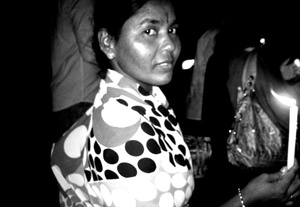Have a Quarter of Asian Men Really Committed Rape?
A statistic based on a United Nations Multi-Country Study on Men and Violence led many to believe that one in four men admitted to sexual assault in Asia and the Pacific. But is this founded on evidence or merely a misreading of the research?
A statistic based on a United Nations Multi-Country Study on Men and Violence led many to believe that one in four men admitted to sexual assault in Asia and the Pacific. But is this founded on evidence or merely a misreading of the research?
Numbers, we’ve learned time and time again, can be deceiving. After looking over the U.N. study, the BBC concludes that reports that excerpted this statistic failed to include the fact that the research was based on 10,000 men in six countries — Bangladesh and Indonesia made up half the sample, and the rest were from Sri Lanka, China, Papua New Guinea and Cambodia. Clearly the size of the sample cannot be representative of the half billion male residents in Asia and the Pacific, explains the BBC:
But putting aside those reports about “Asian men” to one side, it’s still alarming that a quarter of men interviewed admit to rape.
It is significant that two of the areas included in the survey have relatively recently suffered periods of conflict – the island of Bougainville in Papua New Guinea and Jayapura in Indonesia.
The numbers reporting rape here are much higher than in the other areas under study and have pulled up the average.
You can see this both in the figures for rape within relationships and rape outside relationships.
About 12% of men admitted to rape outside relationships. This number falls to 6% if you take out the post-conflict areas.
About 24% of men who have ever had a wife or girlfriend admit what’s classed in this study as “sexual violence with girlfriends or wives past and present”, or “partner rape”, but this number falls to 18% if you take out the post-conflict areas.
Again, though, 18% is still a big number – it’s nearly a fifth of men.
But another interesting detail is what questions the men were asked.
The first country to be surveyed was Bangladesh, and the numbers of men admitting rape were lower here than anywhere else. Here, the researchers talking to the men about their relations with partners or former partners asked a question about “forced sex”.
In the other countries, a second question was also asked, and while a positive answer to this question was treated as an admission of rape, it doesn’t explicitly mention force, violence or coercion.
It was phrased like this: “Have you ever had sex with your current or previous wife or girlfriend when you knew she didn’t want it but you believed she should agree because she was your wife/partner?”
The number answering yes to this second question was larger than the number answering yes to the first question in all areas surveyed, apart from Sri Lanka.
The question, whether or not it was direct, is an important measure because it highlights the role oppressive gender norms play in normalizing sexual abuse, according to London School of Economics’ Dr. Jenevieve Mannell. And according to Mannell, the report was important in that it alerts us to “the ways in which violence against women has become a social norm.” And it’s high time we pay attention, she says.
—Posted by Natasha Hakimi
Your support matters…Independent journalism is under threat and overshadowed by heavily funded mainstream media.
You can help level the playing field. Become a member.
Your tax-deductible contribution keeps us digging beneath the headlines to give you thought-provoking, investigative reporting and analysis that unearths what's really happening- without compromise.
Give today to support our courageous, independent journalists.






You need to be a supporter to comment.
There are currently no responses to this article.
Be the first to respond.